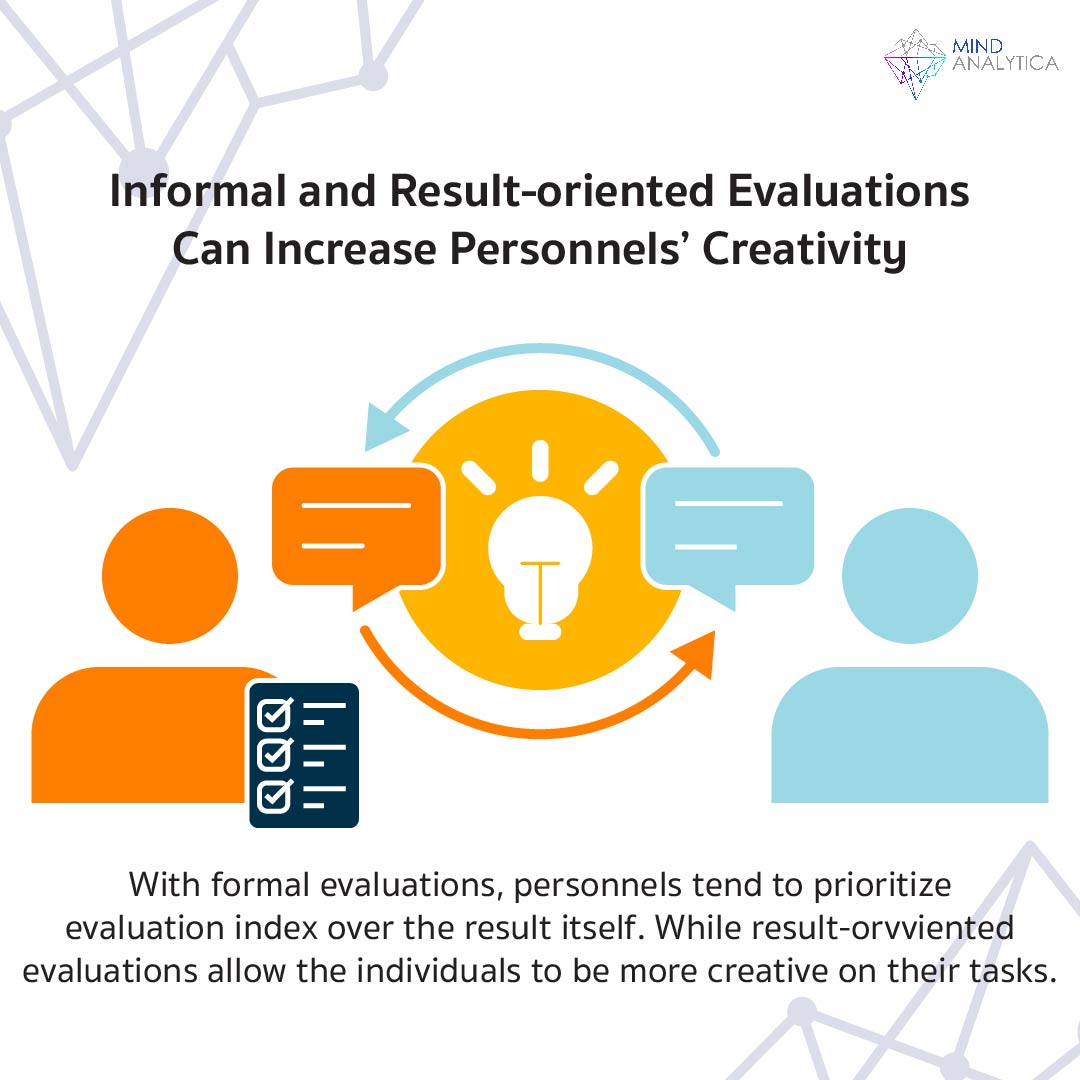Informal and Result-oriented Evaluations Can Increase Personnels’ Creativity
17 กรกฎาคม 2566 - เวลาอ่าน 3 นาที
Performance evaluation is a commonly used tool in human resource management across organizations. The data obtained from performance evaluations is used for various decision-making processes, such as salary adjustments, bonuses, promotions, and training. Performance evaluation is one method organizations use to communicate their expectations to employees and there is ample evidence to suggest that the evaluation process can influence employee behavior positively.
In a survey conducted by Curzi and colleagues in 2019, they examined the perception of 865 employees regarding the effectiveness of different performance evaluation methods in promoting innovative behavior within the organization. The research found that informal evaluations, where supervisors provide feedback and promote creative thinking, were more effective in fostering innovative behavior compared to formal evaluations, which involve supervisors rating employees based on specific questions. Formal evaluations help employees understand what the organization values and the desired behaviors. However, these formalities may cause evaluators to focus more on scoring and rating rather than fostering creative development. Consequently, employees may view informal evaluations, which involve receiving feedback from supervisors, as more beneficial for their professional development and promoting innovative behavior.
Additionally, performance evaluations that focus on results, such as setting goals for successful projects or aiming for high customer satisfaction scores, can stimulate creative thinking more than evaluations that emphasize behavioral aspects of work, such as punctuality, discipline, and following instructions. Evaluating based on behavior can limit employees' ability to experiment with new approaches, whereas focusing on results allows employees to explore new avenues as long as they continue to achieve good outcomes. Moreover, when employees are involved in setting goals and using them for performance evaluations, they perceive the evaluation process as more beneficial and conducive to creative thinking.
Performance evaluations that prioritize assessing whether employees have acquired new skills or competencies also serve as a catalyst for creative thinking. By creating a learning-oriented environment and encouraging employees to explore and learn new things, organizations foster an atmosphere that nurtures creativity. This approach allows employees to generate new ideas based on their acquired knowledge and the environment that supports their continuous development.
In conclusion, informal performance evaluation methods or those that focus on results can effectively communicate that an organization supports innovative thinking. Providing feedback, facilitating conversations between supervisors and subordinates for professional development, emphasizing result-oriented evaluations, and encouraging skill development all contribute to motivating employees to engage in creative activities. Adjusting the performance evaluation process to incorporate these elements improves direct communication with employees about the organization's openness to fostering innovative thinking, which is more beneficial than simply promoting a vision of encouraging creative ideas. However, it is essential to balance the evaluation process, as it should be seen as a tool for performance development rather than solely focusing on monitoring employee behaviors.



